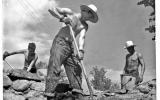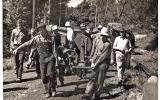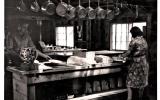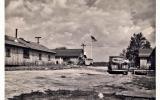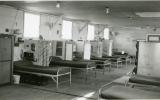CPS Unit Number 010-01
Camp: 10
Unit ID: 1
Operating agency: AFSC
Opened: 6 1941
Closed: 10 1942
Workers
Total number of workers who worked in this camp: 92
-
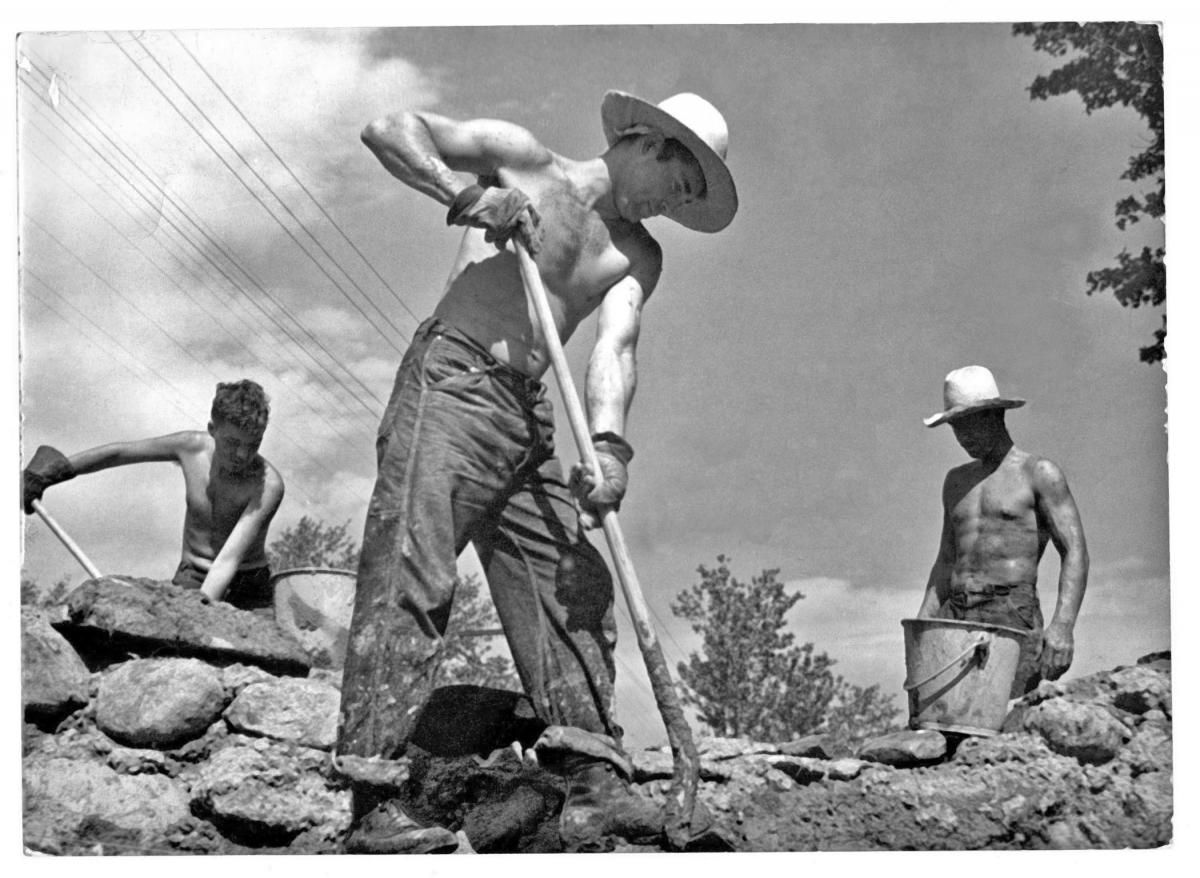 CPS Camp # 10"Royalston." Shoveling out mud and rocks/water hole for fire preventionPhoto by Paul-Kurt Ackermann
CPS Camp # 10"Royalston." Shoveling out mud and rocks/water hole for fire preventionPhoto by Paul-Kurt Ackermann -
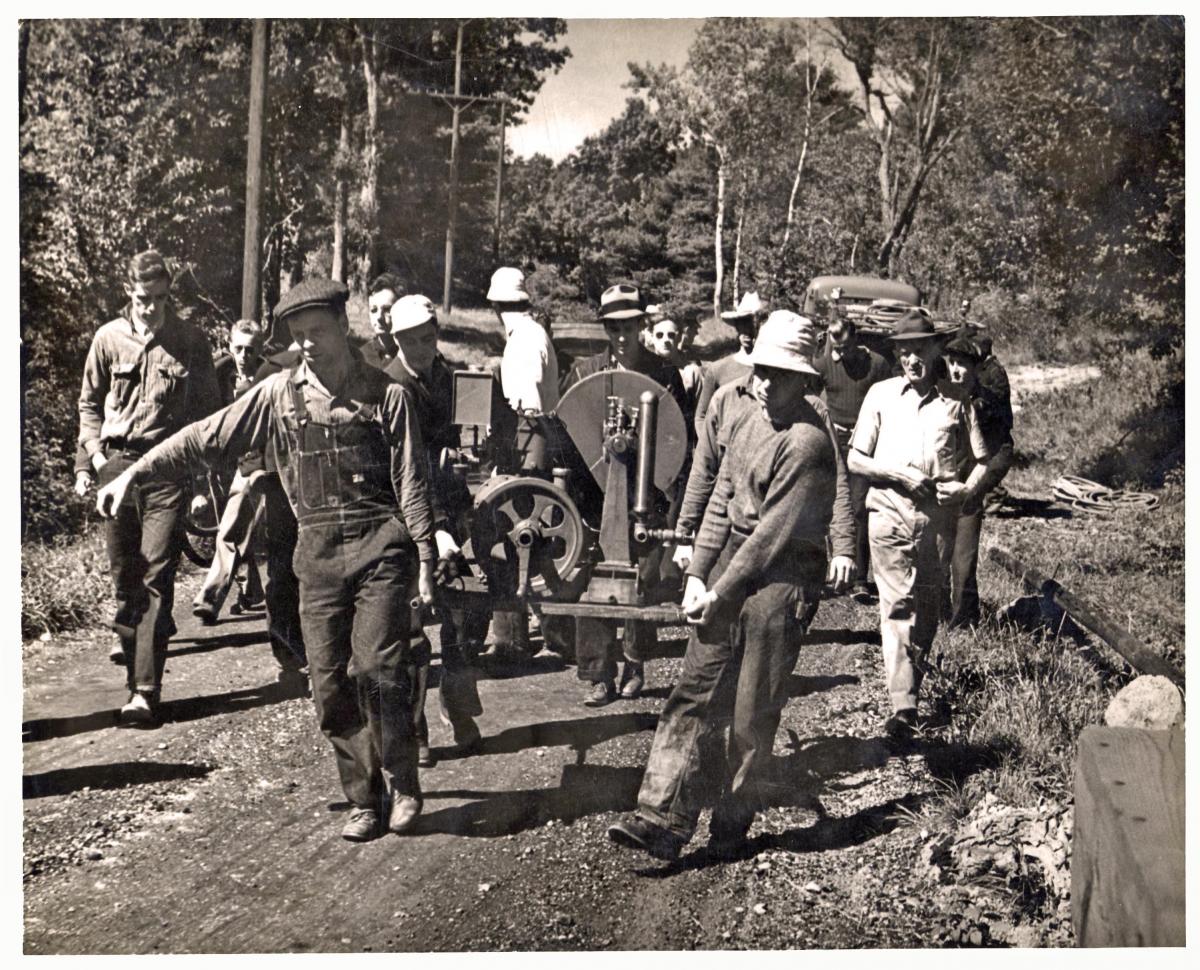 CPS Camp 10, going to a fireOn the way to a fire with special pump equipment.Photo by Paul-Kurt Ackermann
CPS Camp 10, going to a fireOn the way to a fire with special pump equipment.Photo by Paul-Kurt Ackermann -
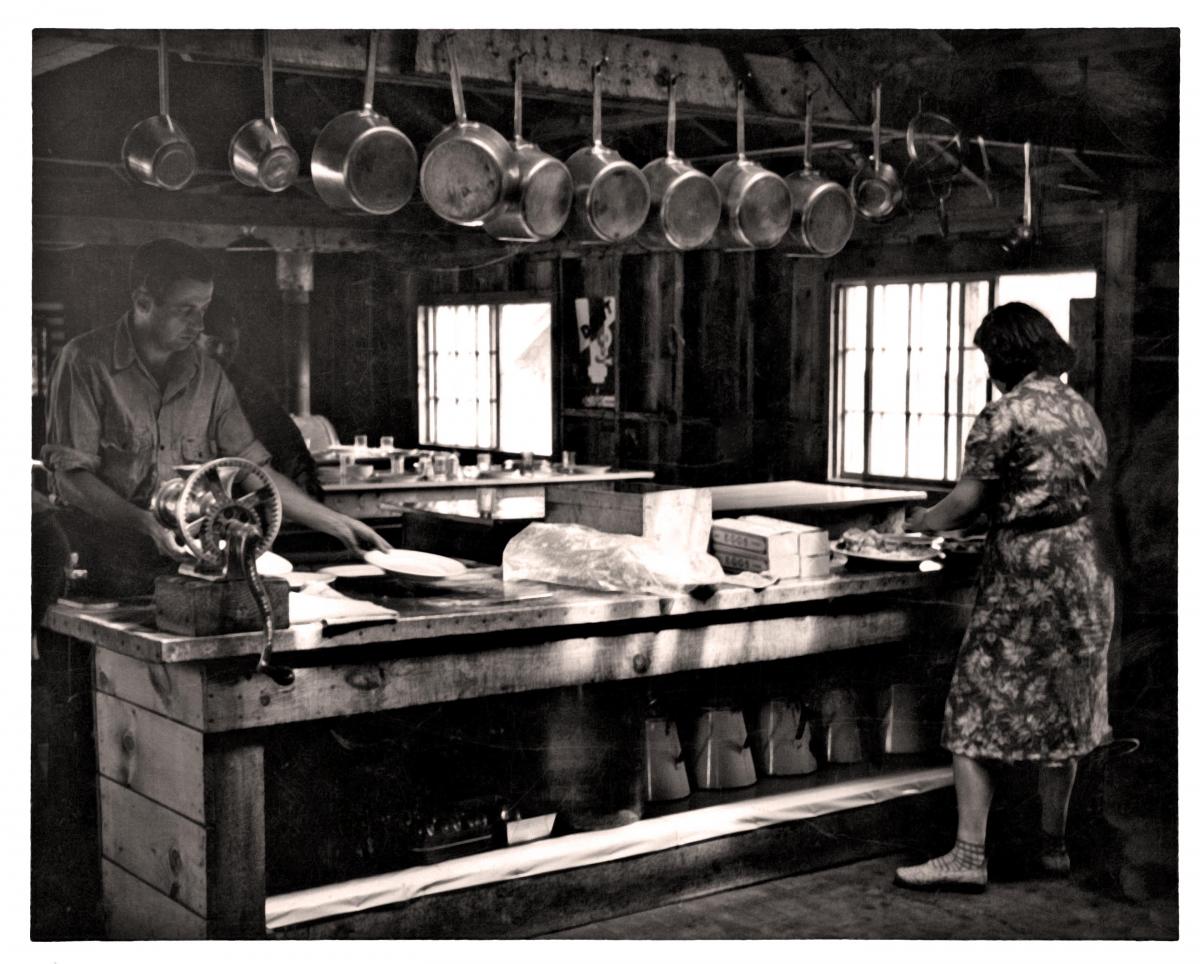 CPS Camp # 10Royalston, Mass. CPS Camp #10. Kitchen--Dietician at work with several campers as assistants. Many of the men are good cooks also.Photo by Richard Wurts, Wurts BrothersAugust, 1941
CPS Camp # 10Royalston, Mass. CPS Camp #10. Kitchen--Dietician at work with several campers as assistants. Many of the men are good cooks also.Photo by Richard Wurts, Wurts BrothersAugust, 1941 -
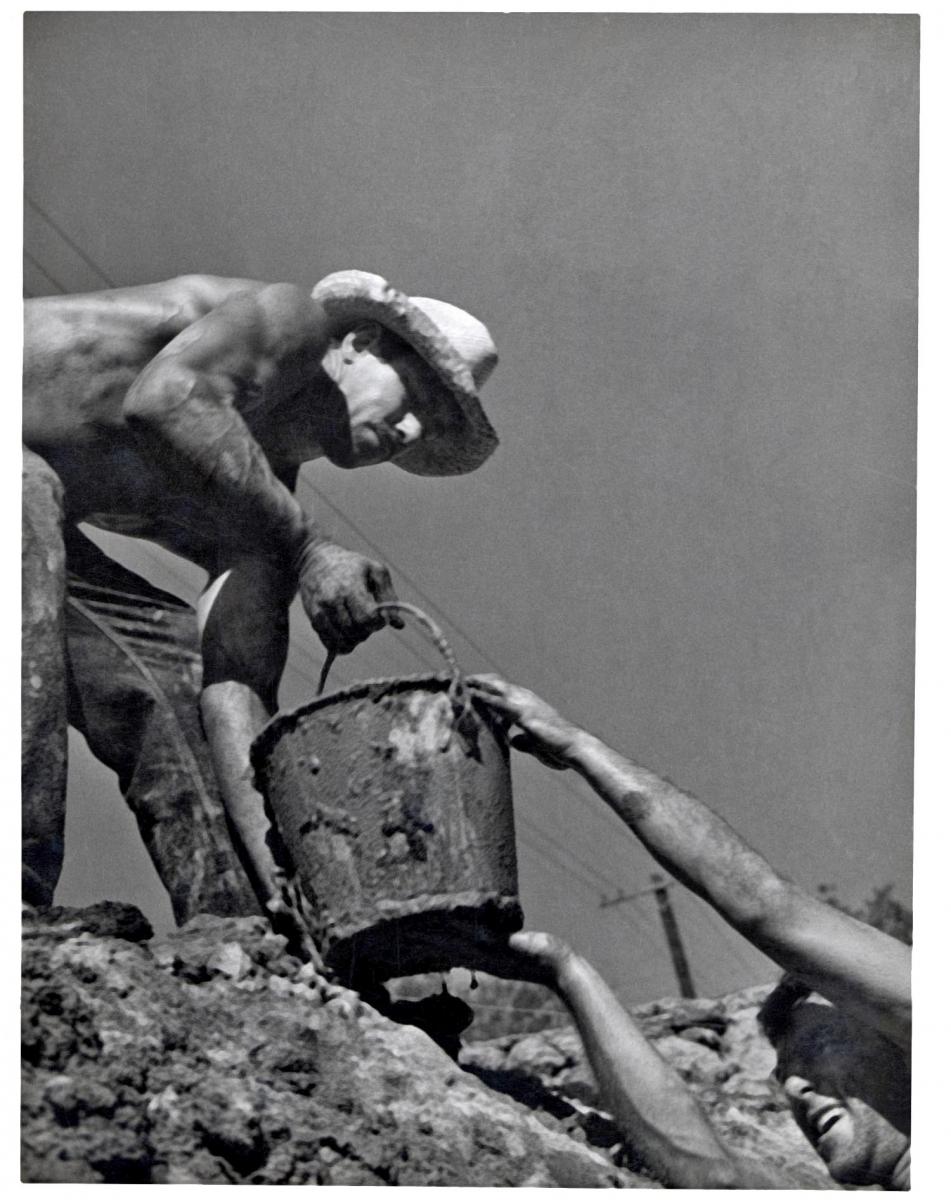 CPS Camp No. 10Digging waterhole for fire prevention - one man lifting bucketful of mud to another. Royalston, Massachusetts. Photo by Paul-Kurt Ackermann, Colgate University.Digital image from American Friends Service Committee: Civilian Public Service Records (DG 002), Swarthmore College Peace Collection, Swarthmore, Pennsylvania
CPS Camp No. 10Digging waterhole for fire prevention - one man lifting bucketful of mud to another. Royalston, Massachusetts. Photo by Paul-Kurt Ackermann, Colgate University.Digital image from American Friends Service Committee: Civilian Public Service Records (DG 002), Swarthmore College Peace Collection, Swarthmore, Pennsylvania -
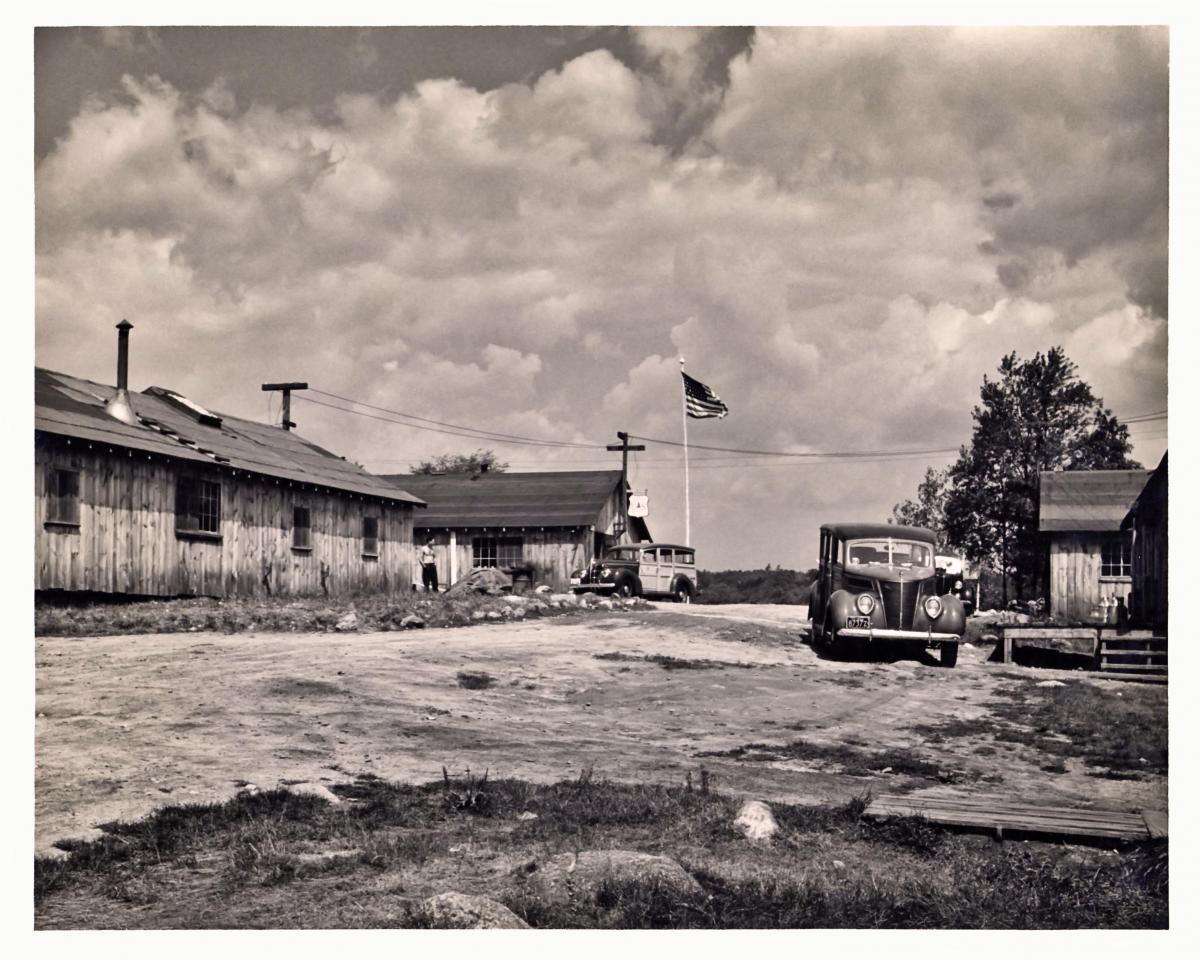 CPS Camp No. 10Buildings & Grounds - general view. Royalston, Massachusetts. 1941-1942. Photo by Richard Wurts of Wurts Brothers Photographers, New York, New York.Digital image from American Friends Service Committee: Civilian Public Service Records (DG 002), Swarthmore College Peace Collection, Swarthmore, Pennsylvania
CPS Camp No. 10Buildings & Grounds - general view. Royalston, Massachusetts. 1941-1942. Photo by Richard Wurts of Wurts Brothers Photographers, New York, New York.Digital image from American Friends Service Committee: Civilian Public Service Records (DG 002), Swarthmore College Peace Collection, Swarthmore, Pennsylvania -
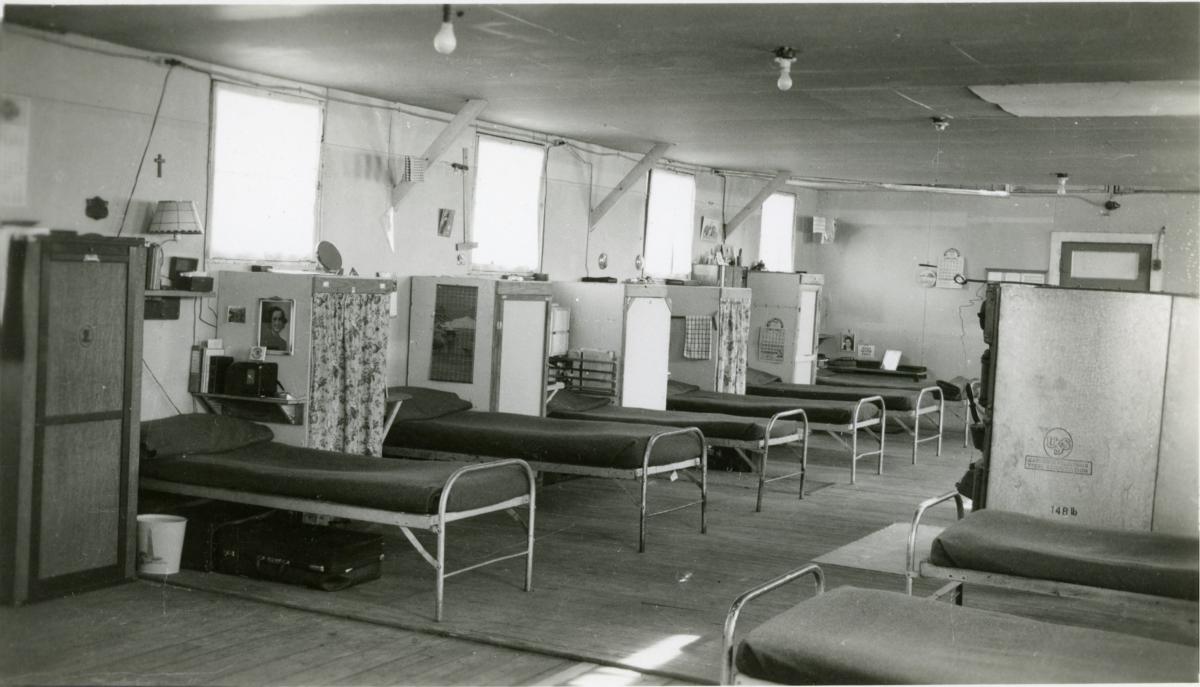 CPS Camp # 10, DormCPS Camp #10,DormMennonite Central Committee Archival Photo
CPS Camp # 10, DormCPS Camp #10,DormMennonite Central Committee Archival Photo
CPS Camp No. 10, a Forest Service base camp, located in Royalston, Massachusetts and operated by the American Friends Service Committee, opened in June 1941 and closed in October 1942. Men cleared fallen trees and debris left by the 1937 New England hurricane.
CPS Camp No. 10, a Forest Service base camp, was located in Royalston, in the northern part of west central Massachusetts.
Director: Henry Perry, Tom Potts
Dietician: Nancy Foster
Nurse: Ann Richardson
The men at American Friends Service Committee camps tended to constitute the most religiously diverse group of men, with some men reporting on entry into CPS Friends affiliation, with other reporting many other denominational affiliations. Friends camps also included men with no religious affiliation.
They came from a variety of occupations, and the numbers from cities were greater than from rural areas. Men in Friends camps reported on average 14.27 years of education when entering CPS, with a number reporting graduate and post graduate education. (Sibley and Jacob p. 171-172)
CPS men cleared fire debris left by the 1937 New England hurricane during the life of the camp. Some men became specialists in telephone maintenance, including repairing lines to ranger stations and stretching new lines for system improvement. Some staffed lookout towers and participated in fire fighting.
The men at Royalston evidently enjoyed considerable freedom in coming and going from the camp. The camp dietician, according to Goossen, was concerned that men were able to use the camp car to go into town for movies during the week and on Sunday. She also noted that “Girlfriends come and go freely—one just stayed a whole week . . . Over a third of the boys have cars . . . There is no limit on weekend leave . . . except in fire season”. (letter from Nancy Foster quoted in Goossen p. 37)
Camp staff and CPS wives with families were keenly aware of hostilities toward COs. They faced difficult decisions about the education of their children. Tom and Florence Potts, directors at the camp, decided to keep their son out of first grade because of the hostility. Florence secured a correspondence course to teach Tony in the family quarters at the camp. (Goossen p. 62)
The men published a camp newspaper New Roots from September 1941 through October 1942.
New Roots Supplemental Issue 7, October 1942, announced that the smaller Friends camps in Massachusetts, Royalston, Petersham (CPS Camp No. 9), and Ashburnham (CPS Camp No. 11) would be combined in a new camp No. 53 at Gorham, New Hampshire.
This is a farewell to Camp Royalston. Greater powers have determined that we, the campers, should remove ourselves to Gorham, New Hampshire; and we shall there with the Ashburnham and Petersham camps reestablish ourselves. Some of us have been working here at Royalston for over a year, many of us for less than a year. We all hope that the contacts with the farmers and townspeople that we have made during our stay have been favorable. We trust that as a result of our presence here, individuals who were once apparently unable to tolerate persons of our philosophy have now an understanding and insight into the meaning of pacifism and conscientious objection.
Many of the men at the camp had been hoping that the move from Royalston might have brought with it a work project or a group of work projects which would more nearly met [sic] the requirements of their interpretation of Work of National Importance. From what we know of the proposed work at Gorham, these requirements will not be fulfilled. We do not feel that an important step forward has been taken by the group. Perhaps our opinions will be changed after acquiring intimate acquaintance with the new camp and its work program. As large as this problem is to us now we realize that we are able to look past a current disappointment and view with determination the vast work that lies ahead, and we save all our energy for that task so that we may be better able to meet it when the time is ready.
For more information on women COs see Rachel Waltner Goossen, Women Against the Good War: Conscientious Objection and Gender on the American Home Front, 1941-47. Chapel Hill, NC: The University of North Carolina Press, 1997.
For stories from men who, as COs, walked to a different drummer during World War II, see Mary R. Hopkins, Editor, Men of Peace: World War II Conscientious Objectors. Caye Caulker, Belize: Producciones de le Hamaca, 2010, Henry Ormsby, pp. 22-31.
For general information on CPS camps and units see Albert N. Keim, The CPS Story: An Illustrated History of Civilian Public Service. Intercourse, PA: Good Books 1990.
New Roots Special Supplemental to Issue #7 (October, 1942) the Swarthmore College Peace Collection, American Friends Service Committee: Civilian Public Service Records (DG002), Section 3, Box 3.
See also Mulford Q. Sibley and Philip E. Jacob, Conscription of Conscience: The American State and the Conscientious Objector, 1940-1947. Ithaca, NY: Cornell University Press, 1952.
Swarthmore College Peace Collection, Camp periodicals database.
